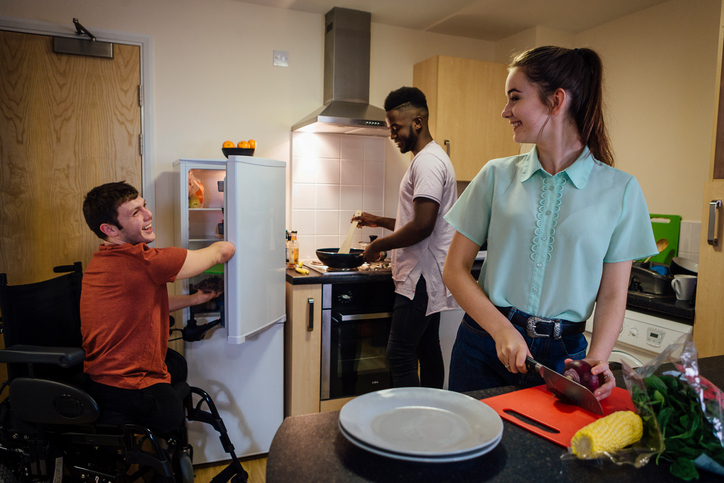Airbnb’s mission is to create a world where anyone can belong anywhere, and that includes travelers with disabilities. While we have rules that prohibit discrimination against people with disabilities and an Open Doors policy that helps ensure everyone can find a place to stay, it’s clear that we can do more to effectively serve people with disabilities. We’ve had insightful and humbling conversations with travelers and disability advocacy groups like the California Foundation for Independent Living Centers (CFILC) and the California Council of the Blind (CCB) where we heard stories, gained perspective, and learned what we can do better. Today, we’re announcing some new features that will make our community more accessible and the acquisition of a new company that will help us accelerate our work.
First, we are happy to announce that we have acquired Accomable and will be welcoming them into the Airbnb family. Accomable was founded in 2015, by Srin Madipalli and Martyn Sibley – two friends with Spinal Muscular Atrophy who have travelled all over the world. Frustrated by the difficulty of finding accessible places to stay and reliable information, Accomable was launched to make it easier for everyone to travel, regardless of disability.
The Accomable site will be wound down over the coming months and we will work to include Accomable’s listings in more than 60 countries on Airbnb. All of these listings have step-free access, high quality photos and detailed information on a whole range of accessibility adaptations. Perhaps more importantly, Srin and his team will be bringing their tremendous expertise and passion for inclusive travel to Airbnb. As part of the Airbnb team, Srin will lead our efforts to make travel accessible for everyone.
Srin and his team will be building on work that is underway to make the Airbnb experience better for everyone. Previously, travelers with disabilities could only search for homes that were labeled as “wheelchair accessible” when they were searching for an accessible place to stay. Guests weren’t getting the information they needed to find the right homes, nor the confidence that the home they selected would actually be accessible for them.
To help address this problem, we have been working on new “accessibility needs” checklists for hosts. While Srin and his team haven’t been involved in the development of these new tools, we’re confident that they will make our community more accessible for everyone and we’re going to work to make them even stronger in the future.
The new features allow hosts to designate whether their listings have step-free entry to rooms, entryways that are wide enough to accommodate a wheelchair, and more. The features help hosts be descriptive about their home’s accessibility, and give guests the clear information they need to find the right home for them. We’ve already begun to roll out this new feature to allow guests to search based on accessibility criteria that is important to them on the web, and Apple iOS and Android will follow over the next few months.
We want everyone to know a little more about how we created these filters and some of the other work we’ve already done to make Airbnb more accessible. You can read more about the work to craft these new tools here.
We’ve also worked diligently to make our website and app easy to use for everyone. We started by asking Level Access (formerly SSB Bart) to perform audits across our digital platforms (iOS, Android, Web). Those audits made clear that we have work to do, and while we’re nowhere near done, we have made progress. In the last year, we have:
- Created a dedicated team of engineers and designers whose sole focus is to help ensure our community is accessible for everyone.
- Improved the color contrast and added labels to icons on our site and app to make them easier to read.
- Redesigned text. Some parts of our site included text on top of images. This text can be difficult to read, so we’ve taken steps to redesign those elements.
- Established training seminars and regular educational initiatives to ensure all engineers and designers understand how to build products that everyone can use.
- Partnered with Lighthouse for the Blind and Visually Impaired to run research studies that will inform our future work on these topics.
All of these improvements are important, but they alone aren’t the solution: they are the start of an ongoing conversation and we’re committed to doing more. We’re looking forward to implementing quicker and easier ways for hosts to update their homes’ accessibility information, and hope to increase guests’ confidence that these homes will fit their needs. And we’ll continue to do all we can to ensure our platform and our community are open and accessible to everyone.
